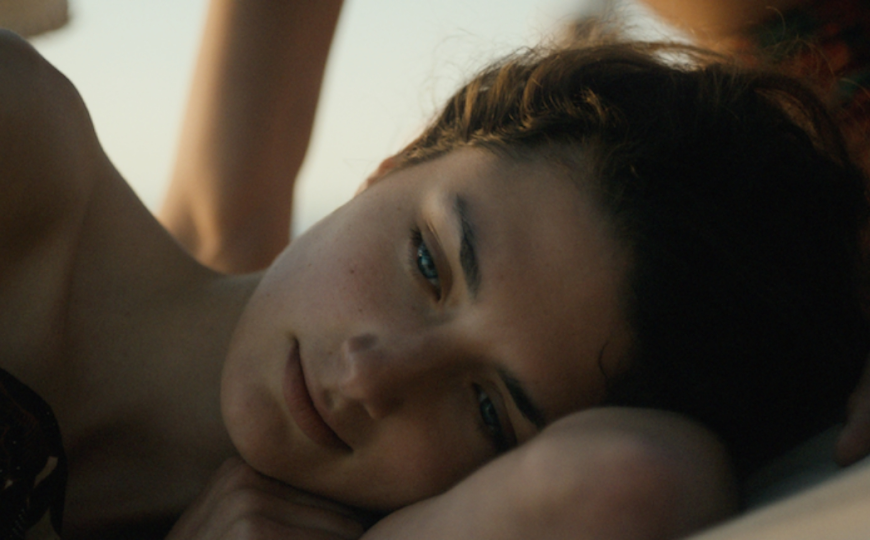‘Noble Earth:’ a movie set in Florence criticizing Florentine high society
ENTREVISTA PUBLICADA EN WITHIN FLORENCE, COMPROBAR AQUÍ
Emma meets Tancredi in Florence, embarking on a love affair with the intoxicating cosmos he represents: endless days in the gauzy Florentine hills or the sun-blanched beaches in Maremma. They become engaged. Soon, however, Emma becomes caught in family politics, learning what is expected of a woman in Florentine high society. The same beauty that overwhelmed Emma reveals itself as superficial and suffocates her. Noble Earth is a study of ennui and female repression within a world rarely seen onscreen — Italy’s hermetic nobility. On the occasion of the screening of Noble Earth at the Berlin Visionär Film Festival 2018 past spring, I had the opportunity to briefly interview Ursula Grisham, director of the film, which was shot mostly in Florence.
Paco Neumann: The lighting used in your movie is quite dark. However, Tuscany light is commonly praised by artists, even Frances Mayes dedicated an ode to it in her book Under the Tuscan Sun … I assume you wanted to show a shady atmosphere and bleak characters, far from the idealism that Americans have about Florence and Tuscany …
Ursula Grisham: When working with my cinematographer Kasper Wind in pre-production — and also my Florentine producer Lorenzo Fiuzzi long before that — we decided we did not want to make a postcard movie about Florence. The light is certainly beautiful, soft and gauzy, and while our idea was capturing that, we also decided to avoid certain clichés about the city. What was more interesting to us than Florence’s beauty “per se”, it was its decadence — both cultural and aesthetic — and beauty is only one aspect of that.
PN: The film shows a snobbish, racist, and nepotistic society, idle young people free of responsibilities, where the family comes first, «la mamma» above all things and then, friends in the second position — which I think is quite true when it comes to Italians … Is your film based on personal experiences?
UG: While not biographical, the film is based on my experiences in Italy and, in particular, in this echelon of Italian society. It was a perspective that evolved over time and throughout conversations I had with many members of the youngest generation, who are all seeking a way forward, a way to understand their past and how to forge a new identity for themselves.
It is interesting that you mention the figure of «la mamma» because the female influence was one of the most fascinating aspects of this culture for me. It is not a traditional matriarchy but rather one, in which behind the scenes, women control the quotidian reality of all things and ultimately the culture’s destiny. To explore femininity and the complex mechanism of female repression — in which women also play a part — within this context was a very compelling point of inquiry.
PN: What I do like most about your film is that you relied on engaging literary resources: it shows more than it tells, leaving a lot of room for imagination and interpretation. I bet you have a background in literature …
UG: I do have a background in literature. In literature, and most forms of art, I prefer works that privilege reality — behavior, landscapes, passing glances — rather than exposition. So what is reality? I recall reading an interview with one of my favorite contemporary directors, the Norwegian filmmaker Joachim Trier after he made the exquisite Oslo, August 31st. The interviewer asked him quite the same question, and he responded by describing those scenes wherein the two characters lay all their cards on the table, talk about their feelings, how they love each other but cannot be together, etc. and he said something along the lines of «I do not make movies like that, because that is not real life. In real life, people do not talk about their feelings. They hide them.» That has been a kind of lodestar when I think about storytelling.
PN: I believe that there is subtle parallelism between your film and Bernardo Bertolucci’s Stealing Beauty, although yours is the antithesis of Bertolucci’s one: American girl who travels in summer to Tuscany, two brothers of a rich family, dead parents, dark secrets, a love story … Have you seen this movie? Did it influence your creative process (maybe in a negative way) in Noble Earth?
UG: I am ashamed to say I have not seen Stealing Beauty. But I will now!
PN: Will your movie be screened or distributed in Italy, Tuscany, Florence …?
UG: We would love to bring the film to Florence. We have not yet signed a distribution deal in Italy, but are very close …
![]()

No Comments